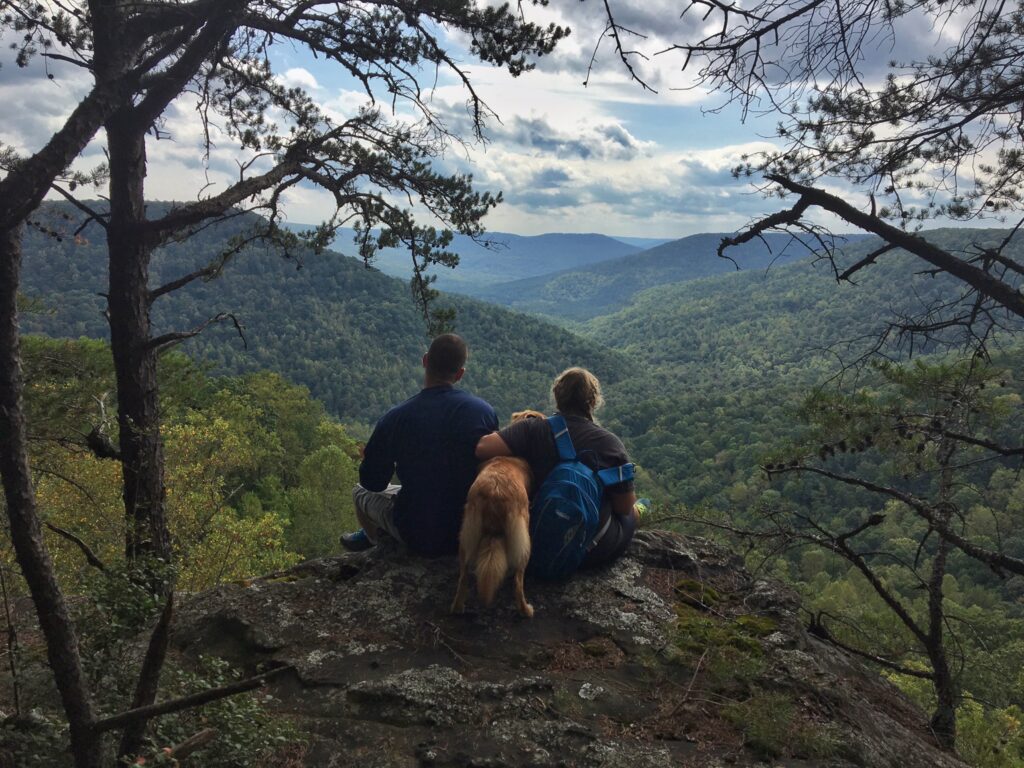
Nurse’s Compassion Strengthened by Grief
By Kerry J. Bickford, VOICES Editor
Healthcare providers are faced with more than their share of loss these days. Between the overdose epidemic and the current pandemic, our caregivers are being challenged like never before -- which places them at significant physical and emotional risk.
In addition to work-related exposure to death, frontline providers are community members who experience the loss of neighbors, colleagues, and family members. This means they encounter fatalities at a higher rate than the rest of the population and must support the bereaved with sensitivity while practicing self-care and coping techniques to deal with ongoing loss.
Molly Bullard Morrison is one such provider who courageously exemplifies compassion and resiliency in her life and work as a nurse practitioner at Vanderbilt Children's Hospital's Critical Care Unit. She is confronted daily with traumatic medical emergencies and loss -- including fatal illnesses, accidents, overdoses, cardiac events, and end of life decisions, including withdrawal of care. Yet, in the midst of this critical work, Molly’s heart works in unison with her head, as she draws upon an additional source of compassion that comes from surviving the loss of her oldest brother -- who she describes as her lifelong friend and “protector.”
Cory Bullard died in 2017 after a long struggle with opioids, a struggle he had fought hard and won -- then lost -- just days before beginning a new job. Molly describes the two years before her brother’s death as their “best two years” during which he worked hard to put his life back together, with the support of his family. He was working toward a degree as a substance-abuse counselor. Despite this focus and his commitment to sobriety,- he relapsed and died.
Molly, who was about to begin working on her master’s degree in nursing, decided to defer her plans for a year to focus on the “unique loss and traumatic grief” associated with an overdose death. She and her brother, Michael, both postponed wedding plans to come to terms with what had happened to their family, and together, they built their support system from the ground up. Eventually, this included a foundation that would honor Cory’s memory and provide education to the public on the disease of addiction.
This focused time with family, close friends, and colleagues offered a unique lens through which she saw what she would encounter in her work ahead. It also enabled her to process what she had witnessed at her brother’s hospital bedside and recall the things that were said and done -- both helpful and not. It opened her mind to an addiction-related death’s unique characteristics and gave her a list of important do’s and dont’s when working with the families and friends who are left in its complicated wake. She could not have done this, she adds, without her supportive colleagues, and she continues to rely on them for strength as she focuses on the self-care necessary in the healing process.
Molly speaks passionately about how vital a judgment-free zone is to a family in the agonizing aftermath of overdose death. She believes in providing a filter exclusive of stigma and inclusive of compassion and dignity. She adamantly believes that a family should never feel like they raised a “bad kid.” Her own experience with her brother has taught her that you can be raised “by the best people I’ve ever known” (her parents) and be a smart, funny, and loving person (her brother), and this can still happen: “It happened to us.”
Molly also stressed how important it is for her, as a provider, to follow through on promises that she makes because she recalls personally “hanging on to every word” as Cory lay in a coma. She articulated how the “power of words” can contribute to a family’s adjustment and understanding of what is going on in an already impossibly frightening setting or contribute to their misery. It is a delicate balance, and she is committed to providing trauma-sensitive communication.
Molly is confident that her own experience with grief has made her a better provider and has given her a “clarity -- a purpose” to carry her love for Cory and apply it in her work with other families and their loved ones. She describes her ongoing grief as being with her “every single day. It’s never moving on -- it’s moving with the grief” and using it as a tool to help others cope with their journeys. This is how we find meaning in the darkest hours.
We owe so much to healthcare providers, like Molly Morrison, who, despite the triggers that continuously remind them of their losses, continue to be luminaries of courage and wisdom. Their endurance helps us realize that something good can indeed come from something so tragic and give us hope that we, too, will survive.
